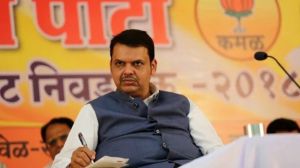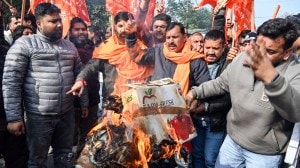Kashmiris need good governance, not autonomy
After a decade of violence and disorder, Kashmir desperately needs agovernment. A government that would care for the battered souls of her...

After a decade of violence and disorder, Kashmir desperately needs agovernment. A government that would care for the battered souls of herpeople. For years, azaadi-seeking insurgents had wreaked havoc in theValley. Its roads are pot-holed, its bridges burnt down, its hospitalsunderstaffed, with doctors staying away for fear of the insurgent.Meanwhile, unemployment levels have just soared and desperation to keep bodyand soul together marks the life of most people.
Against this backdrop, when Farooq Abdullah launched his electionblitzkrieg, the atmosphere was electric. As a reporter covering the historicelections of September 1996, I was amazed to see the reaction of ordinaryKashmiris. The crowds would burst into applause whenever Abdullah, in hisinimitable style, would vow to destroy the insurgents and their mentors.Only occasionally did he talk of his pledge to get the autonomy of the Staterestored. It evoked no response.
A few months later, Kashmir was agog with tales of corruption bypoliticians, bureaucrats and an army of middlemen. Kashmiris are a small,closely-integrated society. It8217;s impossible to hide the personal lives ofpublic figures. Much before National Conference leaders began laying thefoundation stones of their palatial houses in Jammu, Kashmiris werediscussing their housing plans. Abdullah, of course, justified these as bankloan ventures but people remained unconvinced. Favouritism, nepotism andinjustice became as rampant as it was before the days of insurgency. A senseof frustration began to grip the Kashmiri again.
At the same time, I remember Abdullah8217;s presence at the site of aresidential building in Srinagar, an hour after an explosion had ripped itapart killing three members of a family. The terror-stricken inmates werelooking for reassurances, hope and comforting words from him. Instead heraved and ranted. His outburst was misplaced and totally lacking in anunderstanding of the public mood. The months went by but the securitysituation did not improve. Things came to such a pass that the NationalConference was forced to play its trump card: autonomy. By doing so, itshifted the focus from corruption and bad governance to autonomy.
Autonomy, however, does not offer a solution to the real issues facing boththe people and the government. Autonomy is only a game of nomenclature andnot an alternative system of governance. How is autonomy going to change thelives of the Kashmiri? Is autonomy going to make the system more responsiveto his feelings? Imagine when Kashmiris do not have access to the SupremeCourt, how the minorities are going to feel. The jurisdiction of theElection Commission over Jamp;K will cease the moment autonomy becomes areality. One shudders to think of elections being conducted by agovernment-appointed institution in Kashmir.
Abdullah and his associates would serve themselves and the people well ifthey start spending their energies on governance. Kashmiris, emotional asthey are, may get easily convinced by the rhetoric of the NationalConference, but what they urgently need is good governance and an assuranceof fair play and justice.
Politicians pretend to have short memories. The Kashmiri politician must bereminded that insurgency had erupted mainly due to a heightened sense ofinjustice and lack of faith in governance among the young in Kashmir. Theglobal Islamic resurgence and the Pakistan factor were only the catalysts toa home-grown situation. In fact, the anti-India outburst in Kashmir ismainly a manifestation of people8217;s frustration with the political andbureaucratic system in the state.
As the average Kashmiri sees his government8217;s acts being ignored by Delhi,he directs his fire on New Delhi. In my nine years of experience in Kashmir,I have found Kashmiris complaining mostly about corrupt officers and theirmentors in political parties. Not about lack of autonomy.
- 01
- 02
- 03
- 04
- 05































